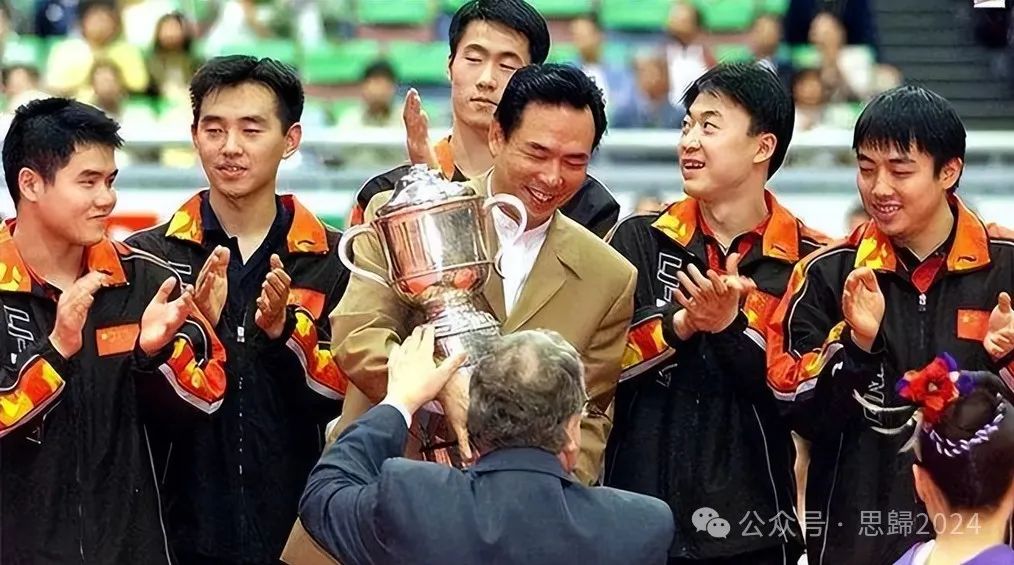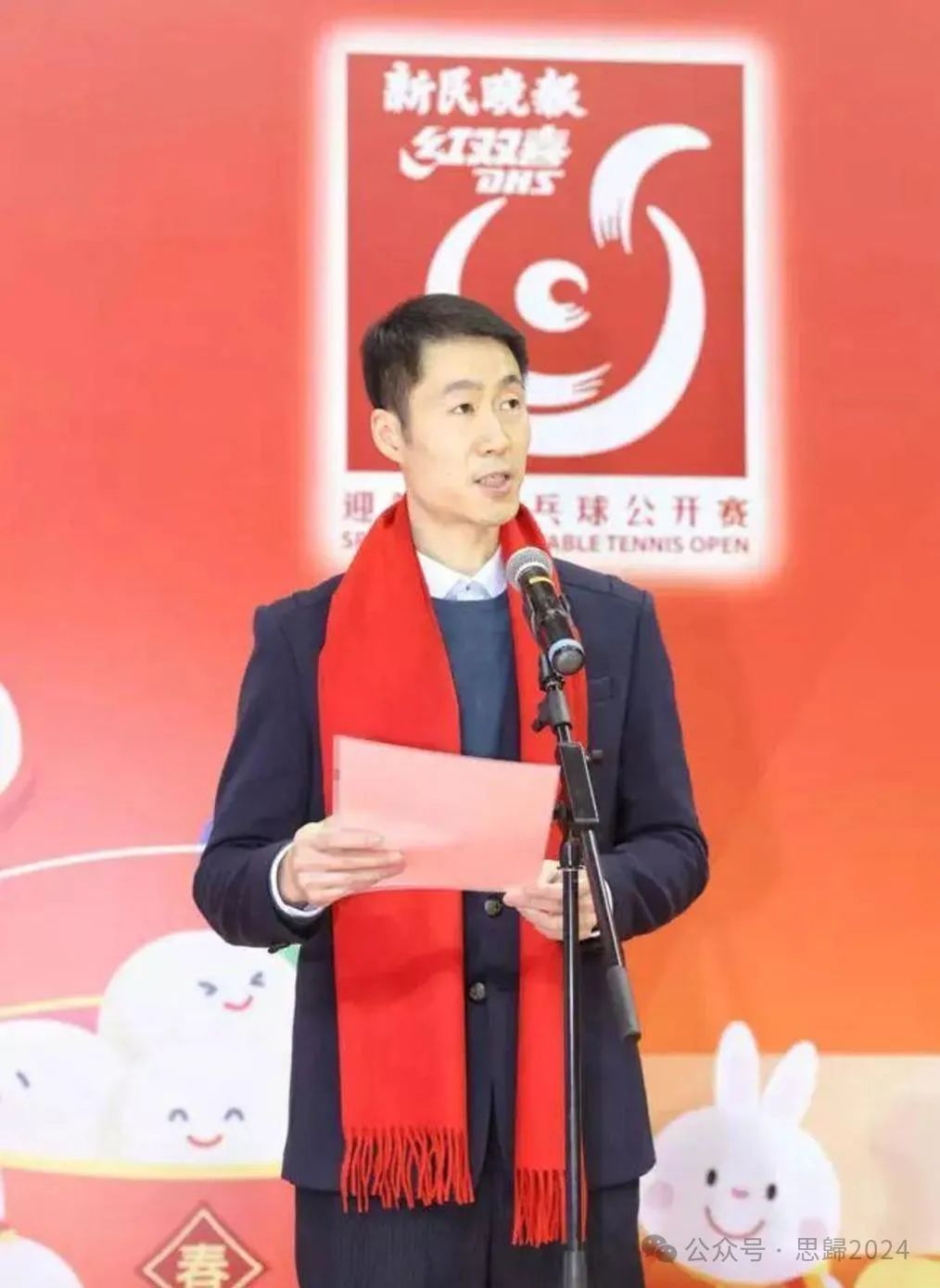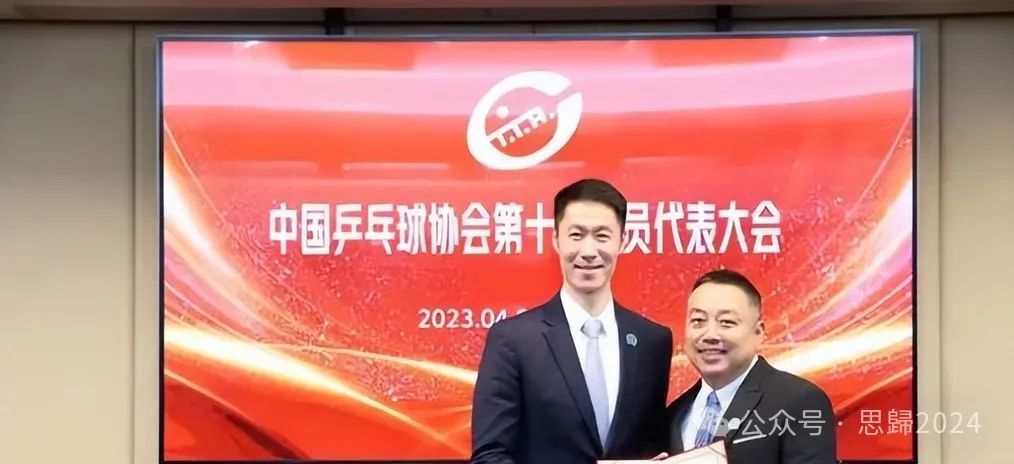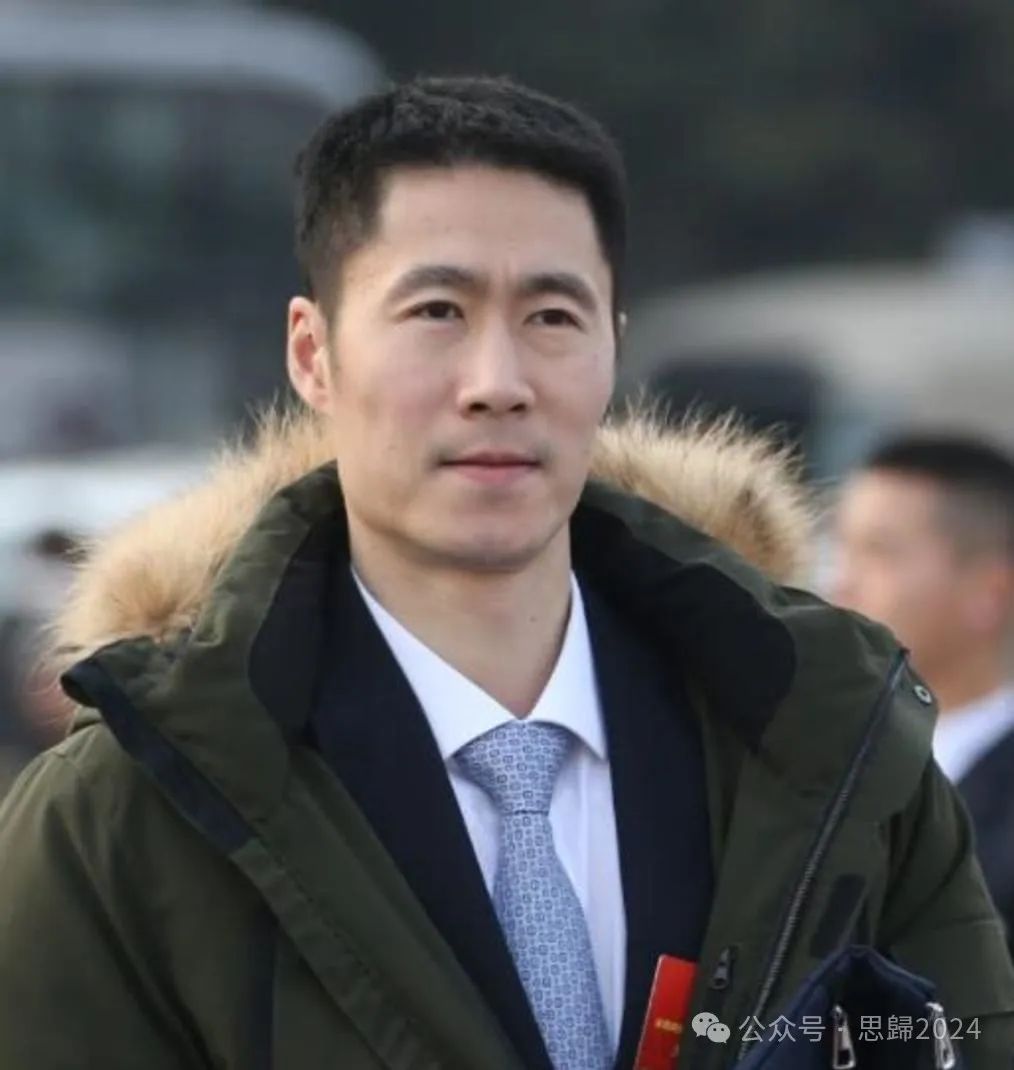China's Table Tennis World Welcomes Major Changes!
Recently, news broke that Wang Liqin, a legendary figure who has won the men's singles title at the World Table Tennis Championships three times, has been officially appointed as the director of the Ping Pong and Badminton Center under the General Administration of Sport of China. This announcement quickly sparked widespread attention and discussion.

As one of the leading figures in the "national sport," Wang Liqin's promotion is not only a personal transformation for a retired athlete but also possibly marks a profound adjustment in China's table tennis management system. What does this appointment by the General Administration of Sport signify? And why is Wang Liqin considered the best candidate for this position? Let's analyze the logic behind this "surprising change" from the perspective of ordinary viewers.
Wang Liqin's Credentials and Capabilities: From Player to Manager, Is It Coincidence or Inevitability?

When it comes to Wang Liqin, many fans are familiar with him. His career has been glorious: three-time world champion in men's singles, with 17 world championship titles, which have left an indelible mark on the history of table tennis. However, Wang Liqin's story is not just about his glory on the court; more importantly, it's about his choices after retirement.
Unlike Liu Guoliang, Kong Linghui, and others, Wang Liqin did not directly join the national team coaching staff after retiring. Instead, he chose to return to Shanghai and engage in local sports management work. From being the director of the Shanghai Ping Pong and Badminton Center to the director of the Shanghai Competitive Sports Training Management Center, and now the director of the Ping Pong and Badminton Center, Wang Liqin has taken steady steps, integrating local experience with national strategies.

Under his leadership, the Shanghai table tennis team has not only cultivated outstanding players like Xu Xin but also successfully introduced Fan Zhendong, ranked first in the world, enhancing the competitive level of the entire region. What does this indicate? Wang Liqin not only possesses solid professional skills but also has the courage to manage teams and formulate long-term strategies. Over the years, he has accumulated rich experience in local sports fields, paving the way for his promotion to the General Administration of Sport.
Adjustments in the Table Tennis Association's Structure: Power Returning to the Center?

In recent years, the power structure of the Chinese Table Tennis Association has gradually transitioned from a "single center" to "diversified development." Liu Guoliang's return and re-election as chairman of the Table Tennis Association established a new model of "association-led, professional operation."
With Wang Liqin's promotion, some people speculate whether this means that the power of the Table Tennis Association will return to the core management layer of the General Administration of Sport. Here, it is necessary to mention the importance of the Ping Pong and Badminton Center.

As a direct institution under the General Administration of Sport, the Ping Pong and Badminton Center is mainly responsible for the daily management and preparation planning of the Chinese table tennis team. On the other hand, the Table Tennis Association takes on more tasks such as event promotion and international exchange.
In recent years, the reforms led by Liu Guoliang have indeed achieved significant results in resource integration and external publicity for the Table Tennis Association. However, from a competitive level perspective, the Chinese table tennis team has always faced challenges from foreign "wolf-raising plans" and the insufficient reserve of domestic young talents. In this context, the role of the Ping Pong and Badminton Center becomes particularly important.

Wang Liqin's appointment may mean that the General Administration of Sport hopes to strengthen the Ping Pong and Badminton Center's coordination capabilities to further integrate resources and provide stronger support for the long-term development of the national team. Whether forming a synergistic effect with the Table Tennis Association or making adjustments in specific affairs, this will have a profound impact on the future development of Chinese table tennis.
Liu Guoliang and Wang Liqin: A New Model of Dual-Core Drive?

Some compare the relationship between Wang Liqin and Liu Guoliang to a "dual-core drive," which is not an exaggeration. Both are part of the golden generation of the national table tennis team, with one being the chairman of the Table Tennis Association and the other the director of the Ping Pong and Badminton Center, with clear divisions of labor but consistent goals.
In terms of personality, Liu Guoliang leans more towards an "outward-looking leader." He excels at using his influence to gain attention for table tennis, such as his status in the International Table Tennis Federation, which is a strong guarantee for Chinese table tennis to go global.

On the other hand, Wang Liqin is an "introverted manager" who focuses more on team building and long-term planning. The complementarity between the two is a significant advantage of the Chinese table tennis management team.
It is also worth noting that according to the regulations of the Table Tennis Association, Liu Guoliang can only be re-elected as chairman for a maximum of two terms. If Liu Guoliang steps down in the future, will Wang Liqin be a potential successor? Judging from his current credentials and influence, he is undoubtedly one of the hottest candidates.

Future Challenges: How to Promote the Comprehensive Development of Chinese Table Tennis?
Wang Liqin's appointment does not mean that all problems will be solved. Although Chinese table tennis has maintained a world-leading competitive level, it still faces many challenges in areas such as youth talent cultivation and the promotion of mass sports.
For example, many places currently lack sports facilities, and there is a shortage of professional coaching resources. Many young people with talent find it difficult to obtain systematic training opportunities.
Moreover, as table tennis gains increasing influence internationally, more and more countries are beginning to attach importance to this sport, and China's leading advantage is gradually diminishing. How to further promote the popularization and development of table tennis while maintaining top-level competitiveness is a challenge facing Wang Liqin.
Conclusion: Wang Liqin's Appointment, a Challenge and an Opportunity
Whether it's the hard work during his playing days or the diligent efforts after retirement, Wang Liqin's story is filled with inspiration. His appointment is both an affirmation of past achievements and an expectation for the future.
As ordinary viewers, what we hope to see is a healthier and sustainably developing Chinese table tennis team; a "national sport" project that allows more people to participate; and a Chinese sports image that maintains its competitiveness on the international stage.
Will Wang Liqin's arrival herald a new era for table tennis? Let's wait and see, and look forward to more outstanding individuals like him contributing to the development of Chinese sports!